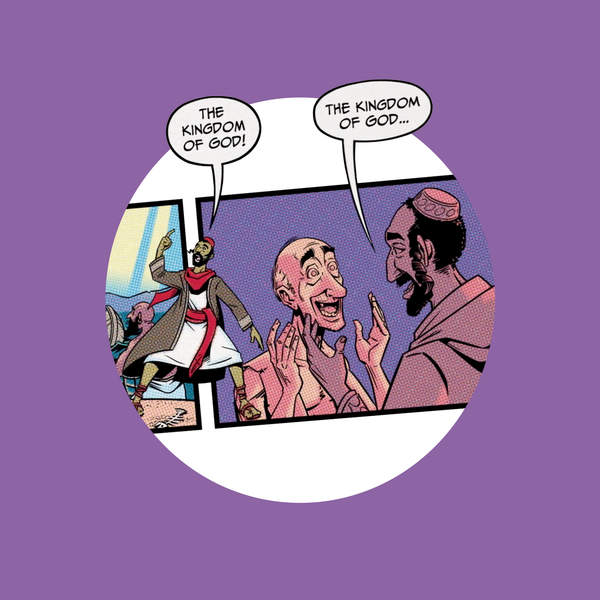
Character in Biblical Narrative
Show Notes
Have you ever wondered what Jesus looked like? Or maybe why the Bible rarely tells us what a person what thinking? Characters in Bible stories are described and portrayed very differently compared to characters in modern stories. In this episode Tim and Jon discuss character design in the Bible. The guys start out (0-9:50) showing how our modern tradition of telling every detail about a character in a story, where they are from, what they look like, what their inner thoughts are, comes from Greek story telling tradition. This is the exact opposite of ancient Jewish storytelling. The biblical authors didn’t rely on telling you about a character, instead, they would tell you what they did. The characters themselves remain very mysterious. Tim says this lack of detail is done intentionally so the reader has to work for an interpretation. In the second part of the episode (9:50-21:13), Tim explains the two ways biblical authors use character details. One, a narrator will use “direct characterization.” A specific detail will be given because it is useful in the story. We are told Saul is tall because later, we find out that David is short. We are told Joseph is handsome because later, Potiphar’s wife attempts to seduce him. Jon asks if this technique is used because the of the constraints of passing stories on pre printing press. The second way is the names of characters. In Hebrew literature, a character’s name represents the very essence of their being and shows their role in the story. Saul means “The one who was asked for” because Israel asked him to be king. The two sons of Naomi in the book of Ruth, their names are Mahlon and Chilion mean “one who is sick” and “to die”. Their only role in the story is to die and set up the plot conflict. In the third part of the episode, (21:13-25:56) Tim explains that just because a character does something in a story, doesn’t mean the author is endorsing the action. Many authors use a minimalist technique of telling the reader the character’s choices but not saying why the character made these choices. A famous is example is when Moses kills the Egyptian who was beating the Hebrew. We don’t know why Moses killed him, we only know that he did. Biblical narrators refuse to tell us if a character is “good” or “evil” instead they let us decide for ourselves. In the fourth part of the episode (25:56-end) Jon asks why. Why would biblical authors take the risk of their work being misinterpreted? Tim says the Biblical authors want readers to puzzle over the ambiguities of their stories because it is meant to represent the ambiguities that are inherent in life. The big narrative of the Bible puts meaning and purpose in the world, but individual stories are meant to create a feeling of opaqueness and mystery. More Bible Project resources are here on the website: thebibleproject.com Thank you to all our supporters!
Produced By:
Dan Gummel. Jon Collins. Matthew Halbert Howen.
Referenced Resources
- "Narrative Art in the Bible" by Shimon Bar-Efrat
- "Poetics and Interpretation of Biblical Narrative" by Adele Berlin
- "The Poetics of Biblical Narrative: Ideological Literature and the Drama of Reading" by Meir Sternberg
- "The Art of Biblical Narrative" by Robert Alter
- "Reading Biblical Narrative" by Yairah Amit
- "The Road and The Border Trilogy: All the Pretty Horses," "The Crossing," "Cities of the Plain" by Cormac McCarthy
Interested in learning more? Check out Tim's library for a list of recommended books and other resources.
Get the BibleProject app for access to our entire library of resources in one place.
Show Credits
Defender Instrumental by Rosasharn Music; Educated Fool by Jackie Hill Perry; Ruby by CJBeards; Flooded Meadows by Unwritten Stories